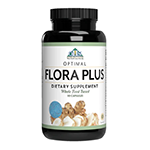
May 19, 2025 Puzzle Piece
GUT BUGS, GUT BUGS, GUT BUGS
THE
GUT microbiome influences all parts of the body and each function at
every area. Research shows a connection between the brain-gut microbiome
system and mental health, digestion, elimination, hormone production,
immune function, skin, depression, and balanced weight for just a few.
Studies have found that highly resilient individuals had unique gut
bacteria, including more active bacteria in key areas like environmental
adaptation and inflammation reduction, as well as distinct healthy
brain structure patterns and emotional wellbeing. The more natural and
preferably fresh vegetables you eat and the more different types you
eat, the better your anti-inflammatory bacteria are created and
promoted. Eating sugar makes sugar craving bacteria and the more animal
products you eat, the more inflammatory bacteria you create.
Gut dysbiosis or microbial dysfunction is linked to physical and mental
health issues. Reduced levels of butyrate-producing bacteria were found
in people with depression, highlighting the gut-brain connection in
psychiatric dysfunction.
Gut bacteria that are oxygen-intolerant play a critical role in
producing and maintaining beneficial short-chain fatty acids.
Disruptions in this balance can lead to increased gut permeability
(Leaky Gut) and many health issues.
Eating the correct foods creates healthy bacteria and supplementing
healthy bacteria also improves gut health, which improves physical and
mental wellbeing. Developing proper dietary habits like eating more
fresh vegetables in quantity and quality and include reducing linoleic
acid intake, while increasing omega 3’s support a healthy gut
microbiome. There are trillions of health causing microorganisms living
in the gut if you eat and supplement properly.
Research and clinical practice suggest the composition of your gut
microbiome with vast varieties of healthy bacteria, fungi and other
microbes living in your digestive system influence how you respond to
stress. This emerging field of study is revealing intricate connections
between your gut microbes and your mental state, offering new healthy
protocols into stress management and mental health.
Research published in Nature Mental Health uncovered the unmistaken
relationship between our brain, gut, and the microbes that that make up
our microbiome. This interconnected system, known as the brain-gut
microbiome plays a crucial role in your physical and mental health as
well as one’s ability to handle stress.
Stress is catastrophic on our health and the economy. Stress-related
health care costs and missed work costs more than $300 billion lost
annually in the United States. Logic and statistics point out increased
stress resilience protects against stress-related depression and
anxiety, and unhealthy coping mechanisms like prescriptions and
recreational drugs, as well as alcohol misuse.
People who are more resilient to stress typically adapt more quickly to
challenging situations and recover faster from setbacks, maintaining a
more positive outlook even during difficult times.
A new study reveals the biological markers of resilience. In this study,
scientists used a combination of fecal samples and advanced brain
imaging techniques to explore how the Brain-Gut connection relates to
resilience. They found some repeatable and consistent patterns,
including that people with a healthy gut yields high resilience, which
tended to yield lower levels of depression and anxiety.
Resilience is linked to active gut bacteria and balanced brain traits.
These individuals also showed consistent characteristics in their gut
bacteria and brain structure. Their gut bacteria were more active in
several key areas, including adapting to their environment, reproducing,
converting food into energy, and inflammation reduction.
Imbalanced gut microbiome contributes to neuropsychiatric disorders in
study after study. When the balance of your gut bacteria is altered,
dysbiosis is created, which makes one vulnerable to mental health issues
and psychiatric disorders. Gut dysbiosis is linked to anxiety,
depression, and bipolar disorder demonstrated in one study.
Depression is linked to lower levels of beneficial butyrate-producing
bacteria, which thrive in a diverse fresh vegetable diet. A study
published in Translational Psychiatry found that gut bacteria known for
their ability to produce butyrate, a short-chain fatty acid with various
health benefits, were reduced in people with depression.
Gut microbes help produce neurotransmitters or chemical messengers in
your brain. They also influence inflammation and play a role in
maintaining the integrity of your gut lining. According to a review
published in Frontiers in Immunology: "Under normal conditions, a
healthy microbiome promotes homeostasis within the host by maintaining
intestinal and brain barrier integrity, thereby facilitating host
well-being.
Owing to the multidirectional crosstalk between the microbiome and
neuro-endocrine-immune systems, dysbiosis within the microbiome is a
main driver of immune-mediated systemic and neural inflammation that can
promote disease progression and is detrimental to well-being broadly
and mental health in particular."
This and other related topics including the Gut-Brain connection and
Insulin Resistance will be discussed from every angle in Super Seminar
in Las Vegas September 25-28, 2025 and January Homecoming 2026, sponsored by Optimal Health Systems (OHS).
Please consider your diet as we suggested, and supplementing with whole
food, predigested, and many fermented nutrient formulations from OHS,
such as
Opti-Adrenal to reduce stress, Optimal Digestion 1 to improve digestion at almost every level,
Optimal Digestion 1 to improve digestion at almost every level,
 Optimal EFA’s, Flora Plus
Optimal EFA’s, Flora Plus  and Flora Blitz 100
and Flora Blitz 100 
to add balance to your microbiome health.
Yours in Health and Wellness,
John W Brimhall, DC, BA, BS, FIAMA, DIBAK, Formulator, Patent Holder